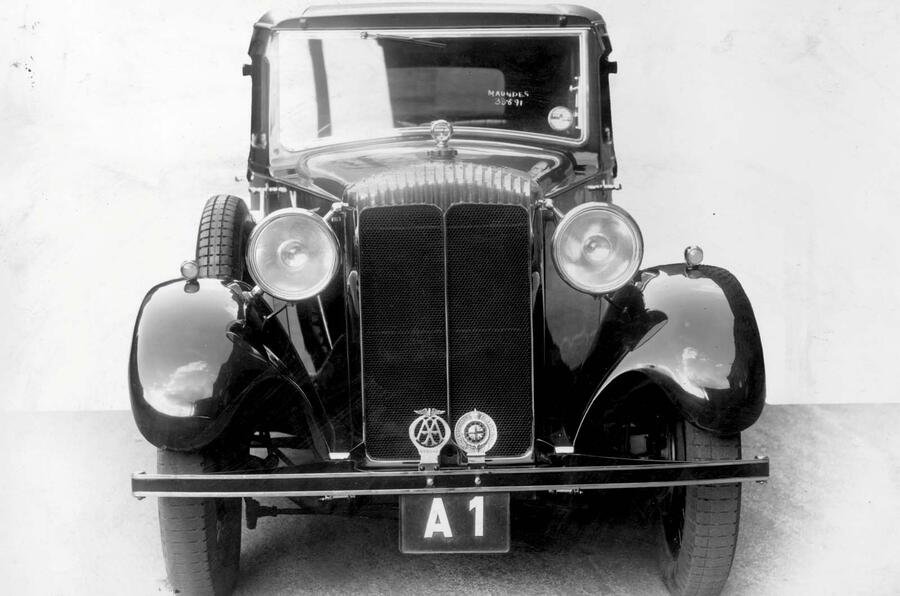Nobody today gives a second thought to their car needing registration plates, but initially this was a very unpopular imposition.
In 1900, Autocar opined in reply to an article in the County Council Times: “We cannot understand, except on the assumption that autocarists are less amenable to the law than all other of Her Majesty’s liege subjects – which is absurd – why they alone should be chosen for having numbers painted on their vehicles.
"Why should they above all users of the highway be subjected to the indignity of having to bear, as it were, upon their foreheads the mark of Cain?”
In 1901, the Automobile Club issued a manifesto signed by 99% of its members to county councils, stating: “English gentlemen have the greatest repugnance to having their private vehicles identified and disfigured by numbers.
Enjoy full acccess to the complete Autocar archive at themagazineshop.com
"[This] would be such a departure from the accepted conditions of life in this country that it would lead the public to believe that a man who prefers to use a vehicle propelled by an engine to one drawn by a horse is, in the eyes of the authorities, a person who is likely to misconduct himself.
"The stigma implied would prevent gentlemen from purchasing motor vehicles.”
It also hosted police chief constables in London to experience a car and discuss motoring matters. At the time, motorists frequently accused police and magistrates of treating them unfairly – as did Autocar. We even printed maps of police speed traps.
Not all the chief constables were in favour of cars being numbered, but a great majority of them were.
Captain Drummond opined that “constables were numbered, and motorists must not object if constables gently suggest in return that motorists should be numbered”.
Mr Paynton Piggott suggested that “numbering would be an advantage to motorists who were gentlemen and drove with consideration, as it would show that they were not driving in such a way as to make them ashamed of identification”.
Lieutenant Colonel Daniell said “steam launches were numbered for the purposes of identification and he could not see why [cars] should not be similarly numbered”.
After MPs concluded that motor legislation had become “absolutely ineffective” by 1902, the Automobile Club stated: “It is necessary to accept identification or allow the 12mph limit to remain.
Methods of identification would at once secure punishment of the offenders who are now bringing [drivers] generally into the worst repute.
The attitude of the authorities gives reason for believing that he who uses his automobile as a gentleman would have no reason to fear that he would be the victim of injustice.” However, many Autocar readers were highly opposed.
“The proposal is monstrous. Is my private carriage to appear in the station yard among [the horse-drawn equivalents] of my friends disfigured by a placard proper to a cab? Such a regulation will naturally be considered offensive and derogatory by all quiet and decent people,” protested Bertram Blount.
“Motorists who are advocating the affixing of numbers or other conspicuous marks of identification upon private motor cars are not only digging their own graves but sealing the doom of the industry as well,” furthered Leopold Canning.
“‘Black-listing’ would have a far greater effect on ‘scorchers’ than the wholesale numbering of cars. If careful and considerate motorists were allowed to drive [unidentified], a large number would advertise that the driver of that car was not a man to be trusted to consider the feelings or safety of other users of the road,” posited Mr G de Freville.
An anonymous correspondent was worried about “the perpetual nuisances” of “practical jokers” and “contemptibly nervous old women” reporting his number unjustifiably.
“It will be easy to get restrictions passed, but to remove them is the work of a lifetime,” warned another.
But of course the police got their way: from 1 January 1904, “every motor car should be registered with the council of a county, and a separate number assigned to each car. The fee will be £1. The car must not be used without its registered number, and the owner will be held responsible for this.”
Related News

